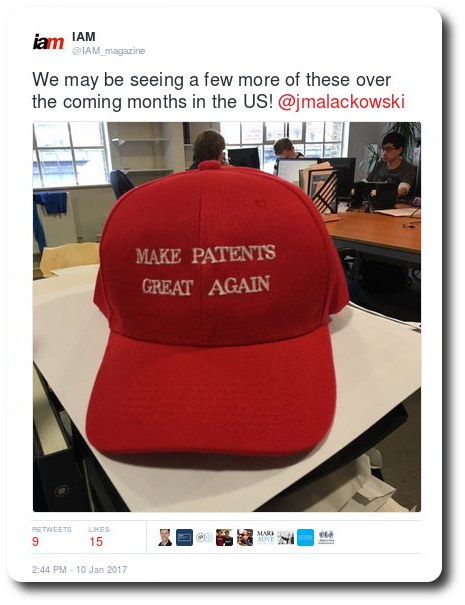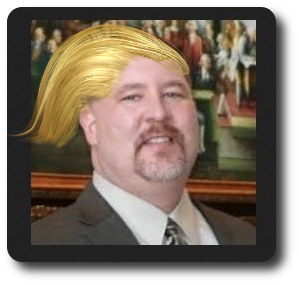

THE year 2017 has only one month left. Throughout the year, on many occasions, IAM heavily lobbied (usually by shaming) the Indian patent system into introducing software patents. IAM is basically a lobbying organ and we know who's funding it. It is sometimes publicly disclosed (sometimes reluctantly or accidentally). Earlier this week it received some more money from the patent 'industry' in India (it typically runs pro-software patents pieces for this 'industry', which harms India's reputable software industry).
 What we would rather turn our attention to, however, is this IAM event with the USPTO's Director Matal in it. IAM, the patent trolls' lobby, together with Watchtroll, helped promote a misguided politician who wants to help trolls. We are quite surprised that Matal agreed to attend after this lobby had attacked Michelle Lee, his close colleague. Watchtroll and IAM are agitator sites that provoke patent defendants and politicians/officials who pursue science, patent sanity, and patent justice. They're backed and/or funded by truly nefarious actors and they know it. EPO management is among these actors.
What we would rather turn our attention to, however, is this IAM event with the USPTO's Director Matal in it. IAM, the patent trolls' lobby, together with Watchtroll, helped promote a misguided politician who wants to help trolls. We are quite surprised that Matal agreed to attend after this lobby had attacked Michelle Lee, his close colleague. Watchtroll and IAM are agitator sites that provoke patent defendants and politicians/officials who pursue science, patent sanity, and patent justice. They're backed and/or funded by truly nefarious actors and they know it. EPO management is among these actors.
Days ago we wrote about Iancu, the next Director of the USPTO, which Trump is making a swamp of. IP Watch wrote about it yesterday. To quote:
President Trump’s nominee to be the next director of the United States Patent and Trademark Office (USPTO), Andrei Iancu, could receive Senate committee approval by the holidays if things line up just right. If appointed, he told a nomination hearing today that he would “evangelize” the IP system and make possible reform of the patent review process a high priority.
1) Does Congress need to act to clear up the uncertainty around 101?
Thanks to a succession of decisions from the Supreme Court a cloud of uncertainty continues to hang over just what is patent eligible in the US. That is particularly true in medical diagnostics, but has also affected parts of the tech industry. There is a growing sense that Congress needs to take action to bring greater clarity to section 101 of the US patent statute — the part that focuses on patent eligible subject matter — but just six years after the America Invents Act, does Iancu agree that more legislation is needed?